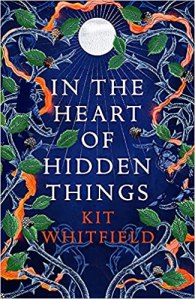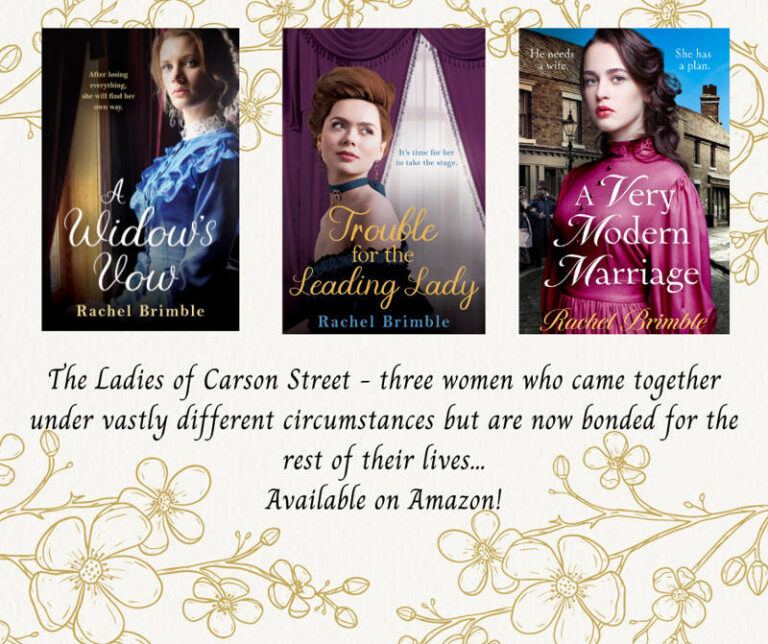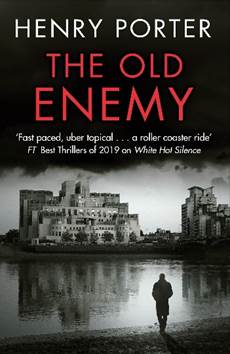And I heard the presenter say, ‘Nobody knows why the fairies didn’t want a roof . . .’

You develop a sense of humour when you live with inflexibility; all families have to know when to laugh in affection rather than get mad, and this was where I was. But it started me thinking. You know, a lot of old folk stories about fairies – not the Victorian era, but the tales before the Industrial Revolution – describe fairies in a way that . . . felt familiar. They have their own laws, which don’t always make sense to the common folk, but they don’t let you get away with crossing them. And I was in the middle of learning how to live with a beloved person whose logic was not the same as mine.
So . . . a mix, really. Start by playing, but I need a plan at some point.
Everyone knows that if you fall afoul of the People, you must travel the miles to Gyrford, where uncounted generations of fairy-smiths have protected the county with cold iron, good counsel and unvarnished opinions about your common sense.
She kindly answered a few of my questions.
‘Well,’ I thought, ‘isn’t that the most obvious thing in the world? The first time they saw the church, it didn’t have a roof. So obviously it wasn’t supposed to have a roof, because if it was supposed to have a roof, it would have had a roof.’
It should be a manageable job. Jedediah Smith has a head on his shoulders, and so too (mostly) does his son Matthew. Only Matthew’s son John has turned out a little . . . uncommon. But he means well.
I do wonder if imposter syndrome ever goes away!
There’s a very old superstition that ‘cold iron’ repels spirits and fairies; well, if it does, thought I, wouldn’t you have ironworkers who specialise in that? Hence, the story is about a family of ‘fairy-smiths’, also called ‘farriers’. (In reality a farrier is a horse foot health specialist, but in the story, ‘farrier’ is to ‘fairy’ what ‘farmer’ is to ‘farm’.)
7. I like to end my Q&As with the same question so here we go. During all the Q&As and interviews you’ve done what question have you not been asked that you wish had been asked – and what’s the answer?
Well, I’ll try not to bang on. But I came up with Gyrford and the Smith family because I wanted somewhere to go. I’m like many writers: my brain starts to wear down like sandstone in the wind if I don’t write regularly. I need to write to feel like myself. In the difficult times, this imaginary place holds me together. (And I am planning it as a series; the sequel is already with the publisher.)
Ah, there’s a story there!
The first thing I have to explain is that my son has special needs: specifically, he’s autistic and has ADHD. He’s a real character and an amazingly sweet person, and the older he gets the more his intelligence and kind-heartedness show; he’s just wonderful. But there’s no point pretending he doesn’t have a harder time than most people: he’s sunny and resilient, but it’s often difficult for him. At the moment I began the book, he was still very young and dealing with challenges common to kids of his neurotype at that age, including problems with flexibility. If I put the toothpaste on the wrong side of the sink, or crossed the road at the wrong point in the school run, there would be shouting!
I wouldn’t say I drew a straight line between the People and my son. Nor between the People and other special-needs kids I know, though by now I know quite a few; you often meet a lot of other special-needs families when you become one yourself. It was more that I was living in a parallel universe that was very different from that of all my old friends, and it was shaping me just as much as any influence I had over my lovely boy. I wasn’t who I used to be, and I felt it’d be more fun to stop trying, and instead, to write as the person I’d since become.
6. If you could only read one book for the rest of your life which book would it be?
It wasn’t his fault the bramble bush put on a berry-head and started taking offence. Or that Tobias upset it. But John’s not yet learned that if you follow the things other folk don’t see, they might drag those you love into the path of ruin.
2. What inspired the book?
5. What do you do when you aren’t writing? What do you do to relax and get away from it all?
Other than that? Well, I do freelance editing, copywriting and reports on people’s books to make extra money. I craft; I like anything that lets me play with string, so knitting, crochet, embroidery, sewing, that sort of thing. And I’m a lifelong nature lover: I need green places, and that’s where I always want to go if I’m out and about. Right now I’m in the middle of building a bioactive terrarium for some British snails I’m keeping. My husband finds my YouTube subscriptions amusingly wholesome – give me plants or string and I’ll play quietly for hours!
Well, one day we were watching television – or at least, I’d put on CBeebies and was hoping something would catch his interest. Along came this feature about a church in the Isle of Man that was abandoned before they could finish it. The builders created the walls, said the presenter, and then they added a roof, but overnight, the fairies knocked the roof off. The builders put it back, but the fairies knocked it down again, and then again, until eventually everyone had to take the point: the fairies were not putting up with a roof on this structure.
But shielding the weak from the strong can make enemies. Ephraim Brady has money and power, and the bitter will to hurt those who cross him. And if he can’t touch elder farrier Jedediah Smith, he can harm those the Smiths care about.
4. Is there anything about publishing a book that still surprises you?
Kit Whitfield is the author of Bareback and In Great Waters. Her lastest novel, In the Heart of Hidden Things, was published by Jo Fletcher on 9 June 2022.
1. Tell us a little about In the Heart of Hidden Things.
Angela Carter’s The Bloody Chamber. It’s an adventure for the mind, reading that book; the way she uses language and imagery is just astonishing.
It’s what you might call a folk fantasy, or else a fantasy with folk horror elements. Capricious wild spirits, class conflict, wry amusement, and the implacable need to protect the vulnerable.
About the Book
To be honest, writing is what I do to relax and get away from it all. As I said, I live in a neurodiverse family and we’re always going to have challenges; I’m a carer as well as a parent. And we do not live in a society that makes life easy for carers! Nor the people they care for, of course – that’s why carers have to do so much. It’s not just my son’s needs at home, it’s the bureaucracy and endless wars of attrition over funding and education. I can’t fault the primary school he went to, they’re wonderful people, but it’s his second school: we were driven out of the first, and that’s not unusual. And even with a wonderful school, don’t get me started on the local authority. And there are other parents in similar situations who need support, because if we don’t help each other, we’re pretty much done for . . .
3. Are you a plan, plan, plan writer or do you sit down and see where the words take you?
The Smiths care about Tobias Ware, born on a night when the blazing fey dog Black Hal roared past the Wares’ gate. Tobias doesn’t understand the language or laws of men, and he can’t keep away from the Bellame woods, where trespass is a hanging offence. If Toby is to survive, he needs protection.
Well, I’d like to be asked if there’s going to be an audiobook version – because I love audiobooks, and I’m really excited that Hidden Things is going to be read by one of my all-time favourite reader, Juanita McMahon. It’s coming out on July 19th, and it’s going to be wonderful. She was such a lovely person to meet, warm and funny and full of sparkle, and we had a fascinating conversation about how to approach it. She told me that character emerges in the performance for her, which I think is perfect – she’s one of those readers you can get lost in, because it’s such a living rendition – but she did some little experiments with voices for some of the more comic characters, and I actually laughed out loud. I can’t wait to hear her performance!
The Smiths live in an imaginary village called Gyrford, where their work protects the folks from the ‘People’. (Also called the Good Neighbours, or, if you’re a fairy-smith, the ‘kind friends’. Probably not wise to call them ‘the fey’, not if you’re standing anywhere they might hear you.)
It depends where I am in the process, I think. If I plan before I ever sit down, then what I write is dead on the page; all the good stuff I write comes from a process of playing around and seeing what kindles. Writing what’s fun rather than what seems sensible is something I’m constantly having to re-learn! It does help to have an end point to aim for, though, and often the narrative reaches a place where I now know where I’m headed, and I can work out a synopsis that’ll take me there. Though I may deviate from it in the process of writing. Finishing a story is like playing chess against my former self: she put the pieces there, and I have to somehow play them into place.
The Smiths were worried enough already, because there’s some reason to believe that their grandson, John, might be a little ‘touched’ – but then they get on the bad side of a wealthy and vindictive landlord, who decides the best way to show them who’s master is to torment another boy they’re trying to help: Tobias, who was deeply touched before he was born and has no way to protect himself. The People are dangerous, but sometimes they aren’t your worst problem.







